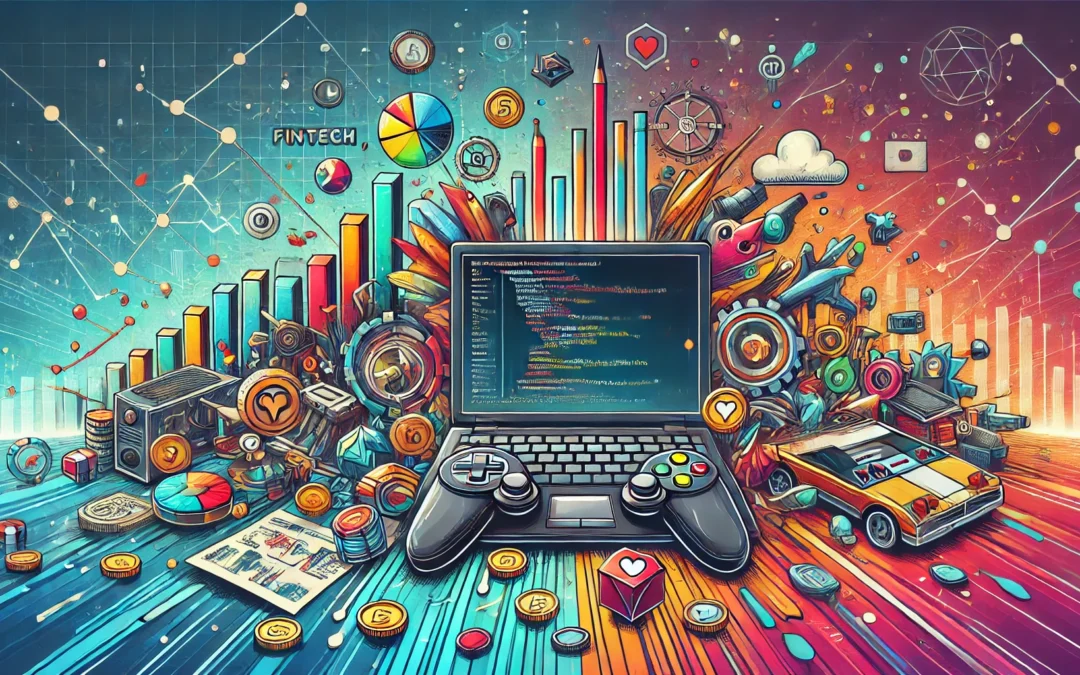GitHub.io, a domain used by GitHub Pages, has become a thriving platform for a wide range of web-based games. These games, often developed by individual programmers or small teams, leverage the open-source nature of GitHub to offer unique and innovative gaming experiences. This exploration will delve into the fascinating landscape of GitHub.io games, their development, and their relevance to the fintech community.
The Appeal of GitHub.io Games
GitHub.io games offer a distinct charm compared to mainstream commercial games. These games are often simpler, focusing on creativity, innovation, and community collaboration. Developers can easily share their projects, receive feedback, and collaborate with others, making GitHub.io a fertile ground for experimentation and learning.
- Variety and Innovation:
- Retro and Classic Games: Many GitHub.io games are recreations or adaptations of classic games. For instance, you can find versions of timeless classics like Super Mario 64 and Doom, reimagined with modern enhancements or entirely new twists .
- Unique Indie Creations: There are countless unique indie games, such as Gladihoppers, which combines gladiator combat with ragdoll physics, or n-gon, a side-scrolling game using the matter.js physics engine.
- Educational and Puzzle Games: Games like 2048 and various versions of Sudoku and chess are also prevalent, providing both entertainment and mental stimulation.
- Open Source and Collaboration:
- The open-source nature of GitHub allows developers to fork existing projects, contribute improvements, and share their own creations. This collaborative environment fosters rapid innovation and the sharing of ideas.
- Accessibility and Convenience:
- GitHub.io games are typically browser-based, requiring no downloads or installations. This accessibility makes them easy to play from any device with an internet connection, ideal for casual gamers or those looking for quick entertainment during breaks.
Developing Games on GitHub.io
For fintech enthusiasts, understanding the development of GitHub.io games can provide valuable insights into software development, user engagement, and the benefits of open-source projects. Here’s a closer look at the development process:
- Using Popular Frameworks:
- Many GitHub.io games are built using popular frameworks like Phaser, Three.js, and Unity. These frameworks provide powerful tools for creating interactive and visually appealing games.
- For example, Phaser is a popular choice for 2D games due to its simplicity and robustness. It supports various functionalities, from physics simulations to asset management, making it a versatile tool for developers.
- Hosting on GitHub Pages:
- GitHub Pages offers a free and easy way to host web applications, including games. Developers can push their code to a GitHub repository and have it live on the internet in minutes.
- This hosting solution is particularly appealing for indie developers and small teams who may not have the resources for expensive hosting services.
- Collaborative Development:
- GitHub’s version control and collaborative features allow multiple developers to work on a project simultaneously, track changes, and manage contributions effectively.
- Open-source games like those on GitHub.io often see contributions from developers worldwide, enhancing the game’s quality and feature set over time.
Fintech Implications and Opportunities
While at first glance, the connection between GitHub.io games and fintech may not be obvious, there are several parallels and opportunities for fintech professionals:
- Gamification in Fintech:
- Many fintech applications incorporate gamification to enhance user engagement. Understanding game development principles can help fintech developers create more engaging and user-friendly financial tools.
- Examples include reward systems, progress tracking, and interactive tutorials, all of which borrow elements from game design.
- Educational Tools:
- Games can be powerful educational tools. Fintech companies can leverage game-based learning to educate users about complex financial concepts, investment strategies, and risk management in an engaging manner.
- Interactive simulations and strategy games can provide practical insights into market dynamics and financial decision-making.
- Innovation and Experimentation:
- The open-source nature of GitHub.io games encourages experimentation and innovation. Fintech developers can adopt a similar mindset, using open-source tools and collaborative development practices to explore new ideas and technologies.
- Hackathons and collaborative projects can lead to the development of innovative fintech solutions that address real-world problems.
- Community Engagement:
- Just as GitHub.io games thrive on community contributions and feedback, fintech platforms can benefit from building strong communities around their products.
- Engaging with users, soliciting feedback, and incorporating community-driven improvements can lead to more robust and user-centric financial products.
Also Read: Abacus Market Link: Navigating the Darknet with Confidence
Conclusion
The world of GitHub.io games is a vibrant and diverse ecosystem that offers valuable lessons and opportunities for fintech professionals. From understanding the principles of game development to leveraging gamification in financial tools, the insights gained from exploring these games can enhance both personal and professional development.
For fintech enthusiasts, diving into GitHub.io games is not just about entertainment; it’s about embracing the spirit of innovation, collaboration, and continuous learning that defines both the gaming and fintech industries. Whether you’re looking to create engaging educational tools, foster community engagement, or simply explore new ideas, the lessons from GitHub.io games are invaluable in the ever-evolving world of fintech.

